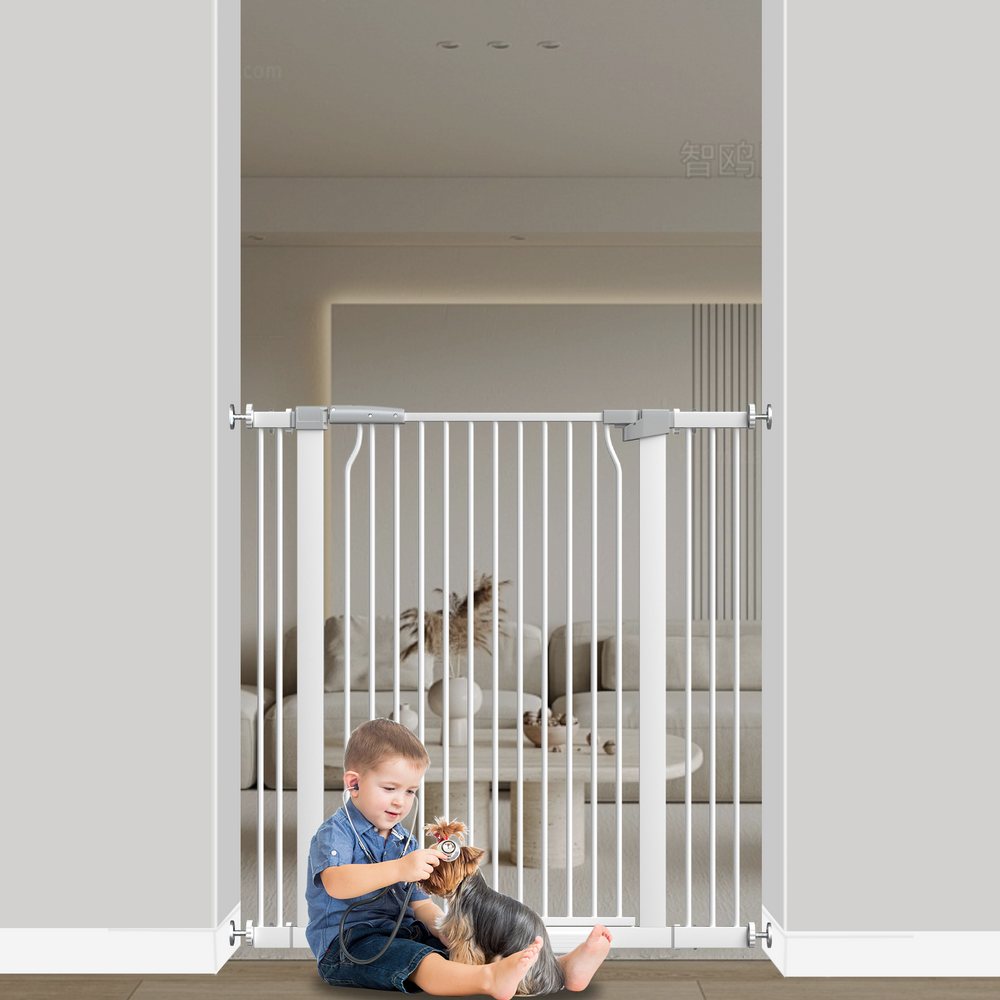King Shepherd: Breed Profile, History, and Care
King Shepherd Breed Overview
King Shepherds are pretty striking dogs, aren't they? They're a relatively new hybrid breed, so you might not see them around every corner, but once you do, they really make an impression. Think of them as a larger, often fluffier version of the classic German Shepherd, but with a bit more of a mellow vibe. "You'll still see that classic shepherd look, but with an extra dash of gentleness," says Dr. Bernadine Cruz, DVM, CVJ. "Think of them as a more laid-back cousin."
These dogs are known for being loyal, smart, and protective. They've got big hearts to match their big size. "They’re big dogs with big hearts, but they need early socialization to make sure they’re friendly with other dogs, people, and pets," adds veterinarian Dr. Alex Crow. If you're curious about whether a King Shepherd might be the right fit for your home, stick around as we explore their history, what they're like, and how to care for them.
Breed Characteristics
King Shepherds are a hybrid breed, developed in the United States during the 1990s. The goal was to create a dog with the admirable qualities of the German Shepherd but with fewer health problems and a calmer disposition. They are often a mix of German Shepherds, Shiloh Shepherds, and Alaskan Malamutes, with some lines also incorporating Great Pyrenees, Canadian White Shepherds, Czech Wolf Dogs, and older Akita lines. This blend aims for a confident, calm, and devoted companion that still enjoys having a job to do.
Physical Attributes
These dogs are quite large, typically standing between 25 to 31 inches tall at the shoulder and weighing anywhere from 75 to 150 pounds, with males usually being the larger of the two. They have a strong, muscular build, often appearing slightly longer than they are tall, giving them a rectangular silhouette. Their heads are large and well-defined, with a muzzle that tapers slightly towards the nose. Their eyes are usually dark brown and almond-shaped, giving them a keen yet composed look. Large, triangular ears stand erect and open forward, sometimes with furred edges. Their noses are large and black. The King Shepherd's tail is long and typically carried low.
Temperament and Personality
King Shepherds are known for their intelligence, loyalty, and protective nature. They tend to be very devoted to their families and can be quite gentle and affectionate. Despite their size, they are often quick and agile, doing well in activities like dog sports. Early and consistent socialization is key to ensuring they are well-adjusted and friendly with other animals and people. They generally have a calm demeanor but are always ready to be a watchful guardian for their household. They do enjoy having a task or activity, but they're also content to simply be with their people.
Despite their imposing size, King Shepherds are often described as gentle giants. Their protective instincts are balanced by a natural affection for their families, making them excellent companions when properly raised and socialized.
| Characteristic | Details |
|---|---|
| Group | Hybrid |
| Height (Male) | 27 to 31 inches |
| Height (Female) | 25 to 27 inches |
| Weight (Male) | 90 to 150 pounds |
| Weight (Female) | 75 to 110 pounds |
| Coat | Long, coarse, straight or wavy double coat |
| Colors | Black, white, tan, brown, gray, silver; often bi- or tricolored |
| Lifespan | 10 to 11 years |
| Temperament | Intelligent, calm, friendly, loyal, protective |
| Hypoallergenic | No |
| Origin | United States |
If you're looking for a large, devoted dog that combines the noble appearance of a shepherd with a generally more relaxed temperament, the King Shepherd might be worth considering. They do require commitment in terms of training, socialization, and exercise, but they can be incredibly rewarding companions. Remember, finding the right dog gate for your home is also important when you have a large breed like this.
The King Shepherd's Origins and History
Development of the Breed
The King Shepherd is a relatively new breed, first developed in the United States during the 1990s. The goal was to create a dog with the intelligence and loyalty of a German Shepherd but with a gentler temperament and fewer inherited health problems. This was achieved by crossing standard German Shepherds with Shiloh Shepherds and Alaskan Malamutes. Over time, other breeds like the Great Pyrenees, Canadian White Shepherd, Czech Wolf Dog, and even older lines of Akita were introduced to further refine the breed's characteristics.
Breed Goals and Intentions
The primary intention behind creating the King Shepherd was to produce a large, capable dog that retained the desirable traits of the German Shepherd, such as courage and trainability, while mitigating common health issues like hip dysplasia. Breeders aimed for a dog that was not only a good family companion but also suitable for roles like rescue work or police duty. They specifically wanted a more relaxed disposition compared to some German Shepherds, making them more approachable family pets. The development also focused on achieving a longer, more luxurious coat, often resembling that of a Belgian Tervuren, though a smooth-coated variety also exists.
Breed Recognition
It's important to note that the King Shepherd is not currently recognized by major kennel clubs like the American Kennel Club (AKC). This means there isn't a standardized breed conformation, and potential owners should be diligent when seeking out breeders. Organizations like the King Shepherd Club of America and the American King Shepherd Club are dedicated to the breed's development and can be good resources for finding reputable breeders and information. While not AKC recognized, these clubs work to promote the breed and maintain its standards.
Finding a King Shepherd might take some effort due to their rarity, but connecting with breed-specific clubs can greatly assist in locating responsible breeders or even adoption opportunities. Always prioritize breeders who provide health clearances for the parent dogs.
Physical Characteristics of the King Shepherd
Size and Build
The King Shepherd is a truly impressive dog, known for its substantial size and robust build. These dogs are not for the faint of heart when it comes to space! They typically stand between 27 to 31 inches tall at the shoulder, with males generally being the taller of the two. Weight-wise, expect them to be between 75 to 150 pounds. Females usually fall on the lower end of that spectrum, while males can reach the upper limits. They possess a strong bone structure and deep chests, giving them a powerful and athletic appearance. Their bodies are often described as being slightly longer than they are tall, creating a balanced, rectangular silhouette. This sturdy frame is complemented by a long tail, which is usually carried low and can be straight or slightly curved.
Head and Facial Features
When you look at a King Shepherd, the head is quite striking. It's large and well-defined, with a skull that has a distinct square shape. This squareness tapers as it moves towards the eyes, leading to a muzzle that is also square and strong, featuring a solid underjaw. Their eyes are almond-shaped and a deep brown color. They often have a very alert yet calm expression, which is quite captivating. The ears are large and triangular, carried erect and pointing forward, often with a good amount of fur along the edges. Their nose is large and always black. It's worth noting that some dogs might have what's called "snow nose," where spots or streaks of pink appear, but this is generally not considered a fault.
Coat and Color Variations
King Shepherds sport a double coat that can vary in length, meaning some have shorter coats while others have longer, more flowing ones. This coat is dense and offers good protection. When it comes to colors, they come in a nice range. The classic black and tan pattern is common, but you'll also see solid black, white, gray, or silver coats. Many King Shepherds display beautiful bi- or tricolored patterns, making each dog quite unique. Their coat requires regular attention, especially the longer-haired varieties, to prevent matting and keep them looking their best. Keeping up with grooming is important, and for those with longer coats, a good grooming tool like the FairyBaby 57" Extra Tall Pet Gate can help manage shedding around the house.
These dogs are known for their loyalty and protective nature, often forming strong bonds with their families. Their intelligence and desire to please make them highly trainable, but early socialization is key to ensuring they grow into well-adjusted companions.
Temperament and Behavior
King Shepherds are known for being quite devoted to their families. They tend to be protective, but not in an overly aggressive way. It's like they have a built-in radar for anything that seems off. They form strong bonds with their people, which is great, but it also means they don't do well if left alone for long stretches. If they get bored or feel neglected, they can get a bit destructive around the house, so keep that in mind.
Loyalty and Protectiveness
These dogs are incredibly loyal. They see their family as their pack and will stick by them. This loyalty often translates into a protective instinct. They're not usually the first to pick a fight, but they will stand their ground if they feel their loved ones are threatened. It’s a quiet sort of watchfulness, more than anything.
Intelligence and Trainability
King Shepherds are smart cookies. They pick things up pretty quickly, which makes training generally straightforward. They respond well to positive reinforcement and consistent commands. Because they're eager to please, they often excel in obedience and other dog sports. Just remember, a bored smart dog can find its own, less desirable, ways to entertain itself.
Socialization Needs
Getting your King Shepherd used to different people, places, and other animals from a young age is a good idea. While they generally have a good disposition, early socialization helps them grow into well-adjusted adults who are comfortable around strangers and other pets. It's about building confidence and ensuring they remain easy-going.
Here's a quick look at some general temperament traits:
- Affection Level: Moderate
- Friendliness: Moderate
- Kid-Friendliness: High
- Pet-Friendliness: Moderate
It's important to remember that while these are general traits, each dog is an individual. Early training and consistent socialization play a huge role in shaping a King Shepherd's behavior and ensuring they are a well-behaved companion.
If you're looking for a sturdy containment solution for your active dog, consider the FairyBaby Extra Wide Wall-Mount Freestanding Dog Gate.
Caring for Your King Shepherd

King Shepherds are big dogs with big needs, so making sure you're prepared for their care is pretty important. They're not exactly low-maintenance, but with the right approach, they can be wonderful companions. It’s all about understanding what makes them tick and giving them what they need to thrive.
Exercise Requirements
These dogs have a good amount of energy, so you'll need to commit to giving them enough activity. Aim for at least an hour to an hour and a half of exercise each day. Think about activities like long walks, jogging, or even some hiking if you're into that. They also really enjoy structured activities like agility training, which is great for keeping their minds sharp too. Just remember, consistent exercise helps keep them healthy and happy, and can even help prevent issues like hip dysplasia.
Grooming Needs
King Shepherds have a pretty thick coat, which means regular grooming is a must. You'll want to brush them a couple of times a week to keep mats from forming and to manage shedding. Baths are also a good idea, maybe once a month, using a shampoo made specifically for dogs. Don't forget about their ears; cleaning them regularly helps prevent infections. And, of course, keeping their nails trimmed and their teeth brushed is part of the routine care that keeps them healthy.
Diet and Nutrition
Feeding your King Shepherd right is key, especially since they're a larger breed. Look for a high-quality dog food that's made for large breeds and is appropriate for their age. Making sure their food has a good balance of protein and essential nutrients is really important for their overall health. You can supplement their diet with low-calorie treats, but make sure the dog food makes up the bulk of their caloric intake. If you're unsure about the best food or portion sizes, your vet can offer some good advice. Some owners find automatic feeders helpful to ensure their dog gets meals on time, which can be useful for busy schedules.
Keeping your King Shepherd active and well-groomed isn't just about appearances; it's about their overall well-being and preventing potential health problems down the line. A little effort goes a long way with these impressive dogs.
Health and Lifespan
King Shepherds are generally robust dogs, but like many large breeds, they can be prone to certain health issues. Responsible breeders screen their parent dogs for inherited conditions, which helps reduce the risk of puppies developing these problems. However, the breed's genetic diversity does offer some protection against inherited diseases.
Common Health Concerns
While not every King Shepherd will experience these, some common health issues to be aware of include:
- Canine Hip Dysplasia: This is a condition where the hip joint doesn't develop properly, potentially leading to arthritis and lameness. Proper nutrition and avoiding excessive exercise during puppyhood can help.
- Bloat (Gastric Dilatation-Volvulus): This is a life-threatening condition where the stomach fills with gas and can twist. Feeding smaller meals, avoiding exercise right after eating, and using slow-feeder bowls can help reduce the risk. If you have a large breed dog, consider a FairyBaby 40" Extra Tall Dog Gate to keep them safe and contained.
- Elbow Dysplasia: Similar to hip dysplasia, this affects the elbow joint and can cause pain and lameness.
- Eye Conditions: Some King Shepherds may be predisposed to certain eye issues like progressive retinal atrophy.
Expected Lifespan
Generally, King Shepherds have an average lifespan of 10 to 12 years. This can vary based on genetics, diet, exercise, and overall care.
Preventative Care
Regular veterinary check-ups are key to keeping your King Shepherd healthy. This includes:
- Vaccinations: Staying up-to-date on all recommended shots.
- Parasite Control: Regular treatments for fleas, ticks, and heartworms.
- Dental Care: Brushing your dog's teeth regularly and scheduling professional cleanings as needed.
- Weight Management: Keeping your dog at a healthy weight helps reduce stress on their joints.
Proper nutrition and consistent, moderate exercise are vital for maintaining your King Shepherd's health throughout their life. It's always a good idea to discuss any health concerns with your veterinarian.
Finding and Adopting a King Shepherd

Bringing a King Shepherd into your home is a big decision, and since they're not as common as some other breeds, finding one might take a bit of effort. It's important to do your homework to make sure you connect with a responsible source for your new canine companion.
Where to Find a King Shepherd
Because King Shepherds are still a relatively new breed, you might not find them hanging out in local animal shelters as often as more established breeds. However, it's always worth checking your local shelters and rescue organizations. You never know when a King Shepherd or a similar mix might be looking for a forever home. If you're set on finding a King Shepherd specifically, your best bet is to look for breeders who specialize in the breed. Organizations like the King Shepherd Club of America and the American King Shepherd Club often maintain lists of reputable breeders across the country and even in Canada. These clubs are a good starting point for your search.
Choosing a Reputable Breeder
When you're looking for a King Shepherd puppy, it's really important to find a breeder who is knowledgeable and ethical. Since the King Shepherd isn't officially recognized by major kennel clubs like the AKC, there isn't a strict, universally agreed-upon standard for the breed. This means you need to be extra careful. A good breeder will be happy to answer all your questions, show you health clearances for the parents, and let you meet the puppy's parents. They should also be invested in the well-being of their dogs beyond just the sale. Don't be afraid to ask for references or to see where the puppies are raised. Remember, a responsible breeder wants the best for their dogs, and that includes finding them good homes.
Adoption Options
While finding a King Shepherd in a rescue situation might be less common, it's not impossible. The King Shepherd Club of America sometimes lists dogs that are available for adoption. It's also a good idea to reach out to breed-specific rescues if you can find them, or even general large-breed rescues. Sometimes, dogs that are mixes or have similar looks might be available, and you could end up finding a wonderful companion through adoption. If you're considering adoption, be prepared to provide a stable and loving environment, as these dogs often thrive with consistent routines and plenty of affection. You might also find that adopting an adult King Shepherd can be a rewarding experience, as they may already be house-trained and past the more demanding puppy stages. It's a great way to give a deserving dog a second chance at happiness. If you're looking for a stylish barrier for your home, consider a clear, freestanding dog gate that offers free shipping on orders over $69.
So, Is a King Shepherd Right for You?
King Shepherds are definitely impressive dogs, with their large size and loyal nature. They seem like they'd be great companions if you have the space and time to give them the attention they need. Remember, they're a newer breed, so finding one might take a bit of searching, and it's super important to find a responsible breeder who prioritizes health. If you're up for the commitment of training, exercise, and lots of love, a King Shepherd could be a wonderful addition to your family. Just be prepared for a big dog with a big heart!







Leave a comment